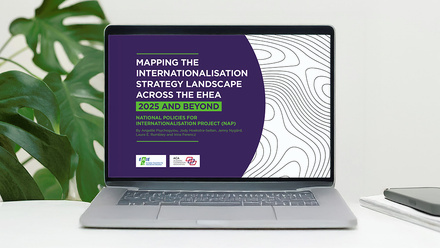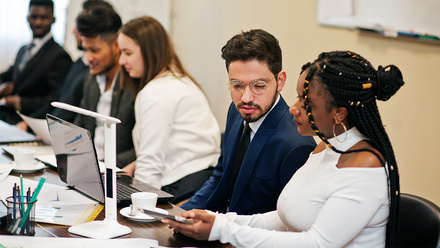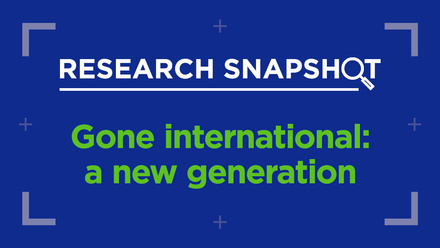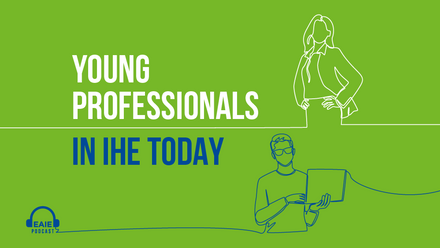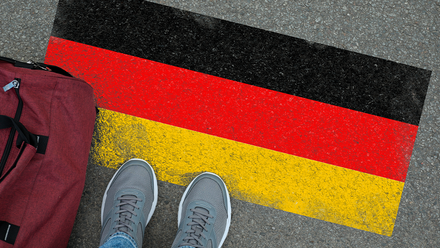5 factors of successful traineeships abroad

In addition to opportunities for personal growth, traineeships abroad can offer career-boosting benefits for students who participate in them. How can curriculum designers, career advisors and other university officials ensure that students get the most out of their international work experiences? EAIE Trainers Gabriele Abermann and Maria Tabuenca-Cuevas highlight some of the most important factors of facilitating successful student traineeships.
Work experience and time spent abroad are among the key criteria for securing a job after graduation. The Erasmus Impact Study (EIS) and others have proven this with quite impressive figures: for example, 36% of Erasmus students have been offered a job during or after their traineeship abroad.
What then can universities do to support their students in enhancing their career prospects through international traineeships? The answer involves taking a broad view of the place of traineeships in a student’s overall education, and remaining focused on what exactly it is students are supposed to be taking away from their time abroad.
Integrating traineeships into the curriculum
Adequate job-related skills are often seen as crucial, but it is the transversal, sometimes called ‘generic’ or ‘soft skills’, that may eventually determine who gets the job. According to the EIS, 92% of employers value these skills. So, if universities want all students to profit from a work experience abroad, then it is necessary to build traineeships into the curriculum.
If universities want all students to profit from a work experience abroad, then it is necessary to build traineeships into the curriculum.
Additionally, self-management and people skills need to be built up continuously and sustainably before students go on their work placements abroad, so they can make the most of this experience. Cooperating with potential employers, career services and educational specialists may support curriculum design to ensure that they are truly oriented towards the specific qualifications students will need in their given fields.
Understanding key competencies that can be enhanced during a traineeship
When students are asked about their experience abroad, they often report that it was a wonderful or exceptional experience, or sometimes a challenging one. When asked for details about which skills they could improve, they usually only mention the discipline- and project-related skills, but are otherwise rather vague. Employers would like, however, a realistic account and specific examples of the generic skills students might have improved.
So, curriculum designers and academics need to know which generic skills are relevant in the traineeship context and which can actually be enhanced. Examples include curiosity, in the sense of an interest in and openness to new aspects and knowledge; resilience in order to cope with unknown, ambiguous or puzzling situations; and the ability to shift perspectives and withhold instant judgement. According to a report by Deloitte, these skills will be required in future workplace environments characterised by “agility, adaptability and collaboration to address uncertainty and disruption”. Experts also associate these skills with entrepreneurial capacity, as demonstrated by the fact that students who have been abroad are more likely to found their own company.
Using Erasmus+ traineeship agreements as a means to design realistic and accountable learning outcomes
The Erasmus+ traineeship agreement provides a transparent instrument to discuss and define the desired skills to be gained during a traineeship. Unfortunately, for various reasons, its potential is often not fully utilised.
First, the agreement is often seen as simply a means to get financial support, and is therefore is filled in as required but with insufficient attention given to what exactly is documented. Additionally, assessing the achievement of the generic skills gain is also often not part of the recognition procedure for the traineeship or the grant. As a consequence, students themselves or an administrator may fill in the document using prefabricated and unrealistic learning outcomes. Fully leveraging the agreement would require an academic from the discipline, ideally one who has already been involved in the curriculum design, who is familiar with designing specific and accountable learning outcomes in the setting of these traineeships. This is not a trivial task.
Preparing students for their traineeship abroad
Exposure to a culturally unfamiliar environment can trigger learning, but only if students are not too challenged or overwhelmed and have resources for coping. So, students need to be prepared, but how and to what extent?
There is no simple answer to this. In study programmes like nursing or teacher education, observation and reflection are part of the overall educational activities, whereas other studies might be focused more on developing hard skills and these students might need more elaborate preparation. In our book Education for Workplace Diversity, we have argued for a minimum of a half-day sensitivity training with supporting activities during and after the traineeship.
Exposure to a culturally unfamiliar environment can trigger learning, but only if students are not overwhelmed and have resources for coping.
Again, learning outcomes for the preparation training as well as the other activities need to be defined and clearly communicated, as well as having their achievement verified. Students need to become aware that organisational cultures abroad may entail a variety of potentially strange or baffling communication and conflict styles, unfamiliar hierarchical and gender patterns, or different attitudes toward initiative and risk-taking that will impact their interaction at the workplace.
Honing their reflective abilities
Experience and reflection are key to generic skills gain in any traineeship abroad. Some students might naturally be inclined to reflect, while others may need to be supported in doing so, for example through a well-designed and structured reflective diary during their traineeship. Equally important is some form of reflective activity on returning back home, be it a returnee seminar, a report, a presentation or some innovative format like a gallery walk. Students need to know whether they have achieved the intended skills gain and they should be trained to articulate their enhanced skills to future employers, for example using the STAR (situation-task-action-result) method or similar ones.


